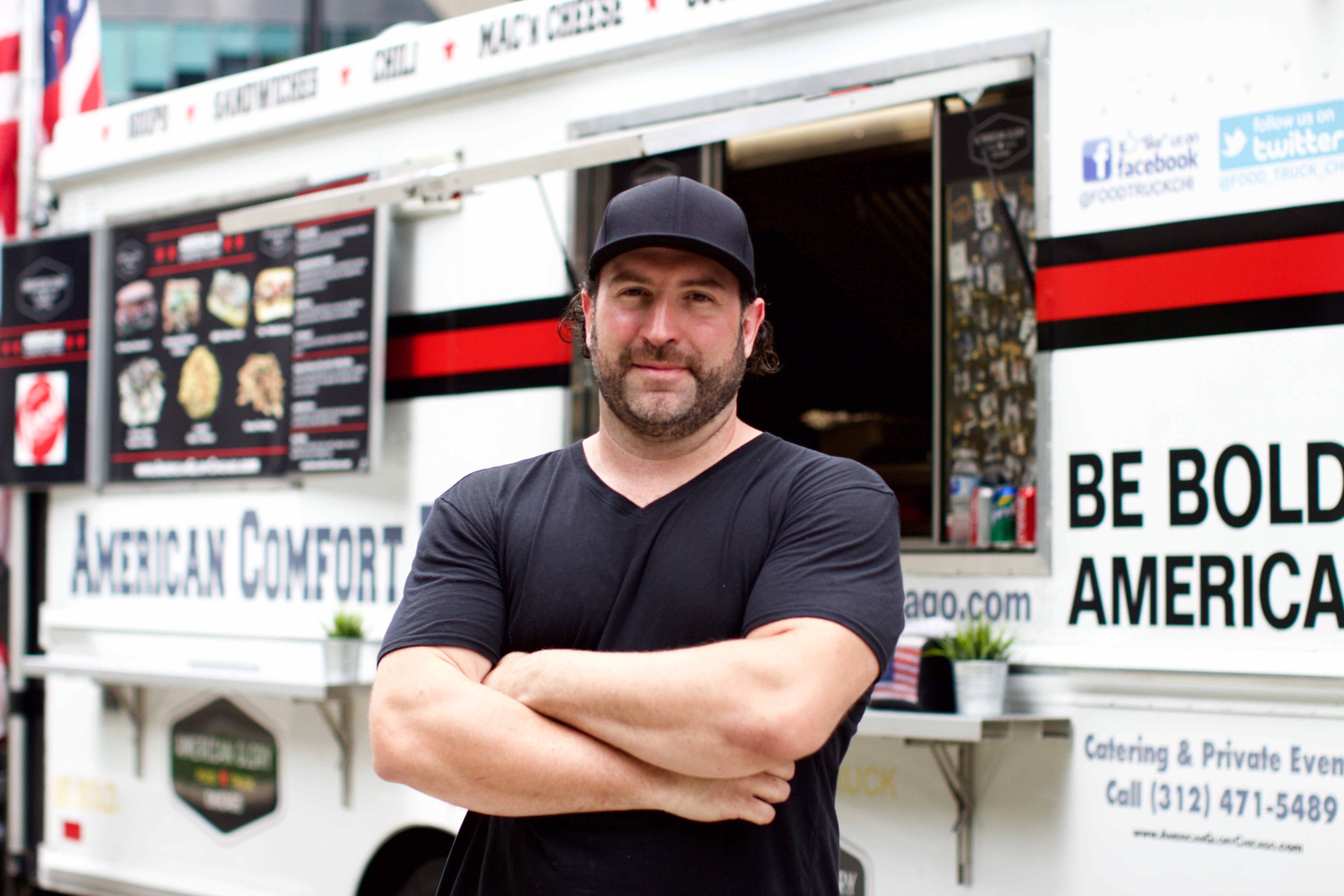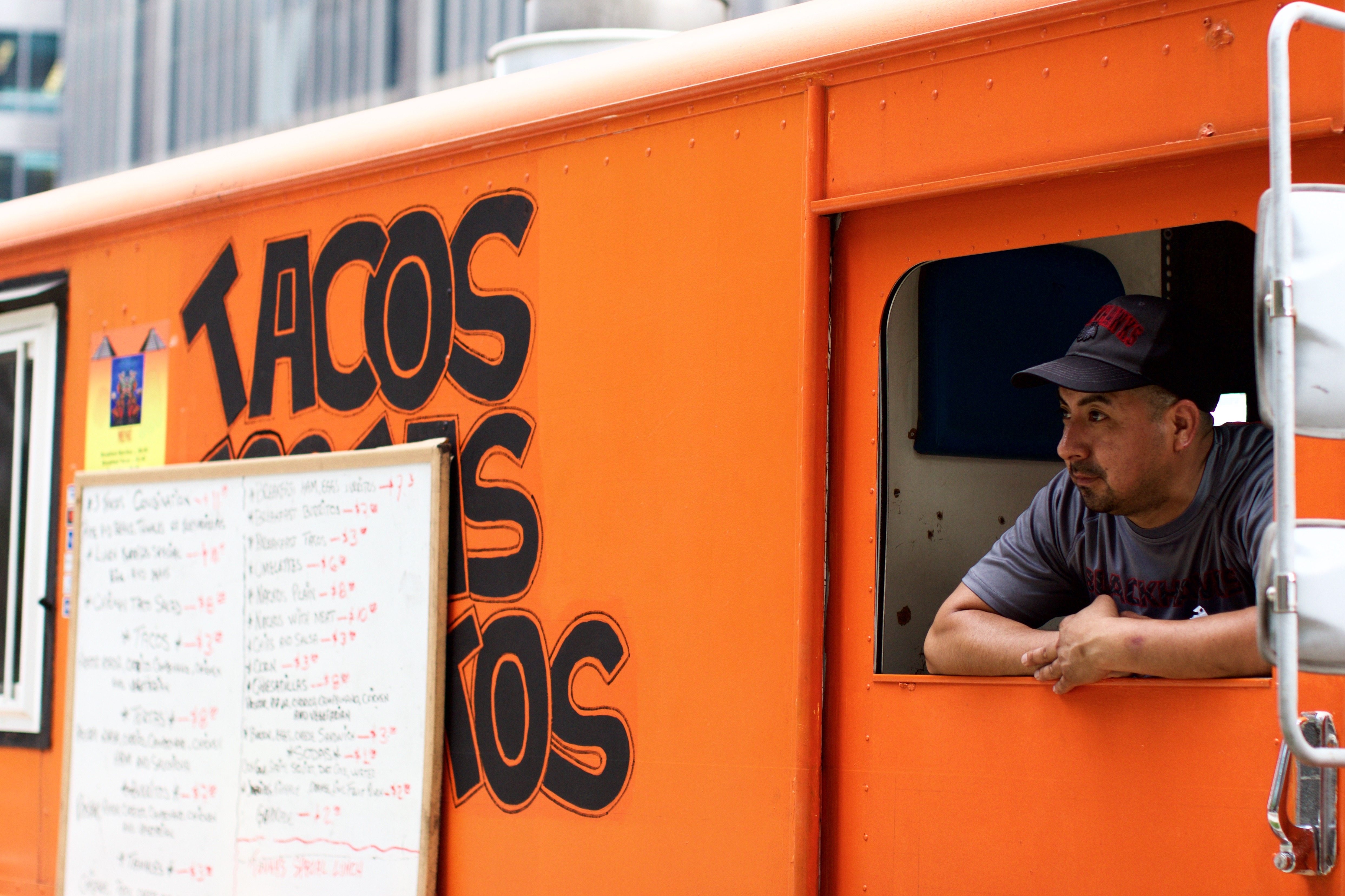Amid heavy ticketing, challenge to Chicago food truck regulations heads to Illinois Supreme Court
Chicago’s regulatory roadblocks have derailed opportunity for the city’s food truck entrepreneurs. As a challenge to those restrictions reaches Illinois’ high court, the outcome of the case could be felt statewide.
The fight for fairness and opportunity has been an uphill drive for Chicago’s food truck owners. And while legal drawbacks have stalled the city’s mobile vendors in recent years, the case against the Windy City’s food truck restrictions will see its day in Illinois’ high court.
The Illinois Supreme Court announced May 30 that it will agree to hear a challenge to Chicago’s food truck regulations. The latest stage in an ongoing case against the city, the lawsuit brought by the owner of the Cupcakes for Courage food truck had been initially rebuffed by a Cook County Circuit Court judge in December 2016.
A victory in this case couldn’t come sooner for food truck owners. At least six food trucks parked near the intersection of Wacker and Adams in the Loop – the area where the most Chicago food trucks congregate to sell to hungry customers – were ticketed May 31 and will likely be forced to shut down operations indefinitely in the area.

Sisters Laura and Kathryn Pekarik, co-founders of Cupcakes for Courage, trace their culinary calling to a bake sale the two organized in 2010. An effort to raise money to help cover medical costs as Kathryn battled non-Hodgkins T-cell Lymphoma, the event’s popularity inspired the sisters to grow their operation into a full-fledged food truck enterprise, reserving a portion of their earnings for charities devoted to cancer research.
One might have imagined opportunity opening up for the Pekarik sisters when Chicago City Council passed a law legally recognizing food trucks in 2012. Instead, the ordinance heightened barriers and narrowed boundaries, impeding the ability of food trucks to operate in the city. The restrictions are so severe than just 3 percent of Chicago’s downtown Loop is legally operable for food trucks. It was in response to this ordinance that Laura Pekarik again found herself inspired – to challenge the city’s onerous food truck regulations.
Following the Cook County court’s 2016 decision, Cupcakes for Courage suffered a subsequent loss December 2017 appealing before the Illinois Appellate Court. But the Illinois Supreme Court’s decision to hear the case suggests the book has not been closed on the mobile bakery’s push for regulatory reform.
Appetite for reform
A number of food trucks in the city share the plight of Cupcakes for Courage.
“We are just trying to serve the community like the other businesses in the city of Chicago,” said Jeff Doornbos, owner of American Glory Food Truck. “At the same time, we are trying to make sure that we are abiding by all the rules and regulations put forth by the city.”

For many food truck license-holders, however, compliance with those rules and regulations have proven nearly impossible.
“We are on one of the only streets in the city of Chicago that falls [outside of] the 200-foot rule,” Doornbos explained at the intersection of Wacker and Adams, where trucks were ticketed May 31. “These food trucks, the owners, are fighting for these spaces because it is prime real estate in the city.”
The “200-foot rule” is one of the regulations Pekarik is challenging in court. According to Chicago’s ordinance, no food truck may park within 200 feet of brick-and-mortar establishments that serve or sell food – including convenience stores and vending machines. In dense neighborhoods, such as downtown Chicago, this dramatically reduces the parking availability for food trucks.
To enforce the 200-foot rule and other regulations, the city requires all food trucks licensed in Chicago to install a GPS device with which they’re required to report their whereabouts once every five minutes. Pekarik’s case is also challenging the city’s GPS requirement, arguing that it violates the Illinois Constitution’s protections against unwarranted searches.
A March report released by the U.S. Chamber of Commerce found that Chicago’s food truck regulations were among the worst in the nation, a discovery that most food truck vendors had by then made themselves. By 2017, according to the report, Chicago’s food truck presence had been halved since 2012.
For those who have remained in business, it’s a cautious optimism about the future that fuels their food truck venture.

“I think if the city will be fairer to everybody, then we will be better, all of us,” said Jaime Salinas, who runs the Mexi-Tacos food truck.
Hopefully, the Supreme Court rules in favor of such fairness.